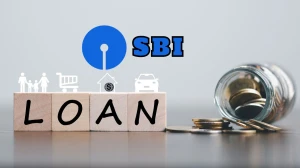
How to Choose the Best Mortgage? What is the Most Popular Mortgage Type?
Consider your budget and credit score, compare lenders to find the best rate, and decide between a fixed or adjustable-rate mortgage based on your preferences and financial goals.
Published Jul 20, 2023 | Updated Nov 27, 2023 | 📖 10 min read
On This Page
What is a Mortgage?
A mortgage in the USA is a type of loan specifically designed for the purchase or maintenance of real estate, such as a home or plot of land. In this financial arrangement, the borrower enters into an agreement with a lender to repay the loan over time through a series of regular payments. These payments typically consist of both principal and interest, with the property itself serving as collateral to secure the loan.
To obtain a mortgage, a borrower must apply through a chosen lender and meet various requirements, including minimum credit scores and down payments. The mortgage application undergoes a thorough underwriting process before reaching the closing phase, where the finalization of the loan takes place. There are different types of mortgages available to borrowers, such as conventional or fixed-rate loans, each tailored to meet different needs and preferences.
Key considerations for borrowers include the type of mortgage, the loan term (e.g., 30 years), and the interest rate charged by the lender. The overall cost of a mortgage is influenced by these factors, and mortgage rates can vary widely based on the specific type of loan product and the qualifications of the applicant.
How to Choose the Best Mortgage?
Selecting the right mortgage is a crucial step in the journey to homeownership, but the process can often be as challenging as decoding intricate jargon. While it may lack the thrill of shopping for shoes or gadgets, the effort invested in finding the best mortgage can result in substantial long-term savings. This guide outlines six essential steps to simplify the mortgage selection process, empowering you to make informed decisions and secure a loan that aligns with your financial goals.
Evaluate Affordability
When contemplating a significant investment such as a home purchase, the first step is to assess your financial capacity. The question of whether this six-figure commitment is within your financial reach naturally arises. Utilizing a mortgage calculator can provide clarity by helping you determine the realistic range of houses that fit your budget.
It's important to recognize that, with a decent credit score, lenders may present a more optimistic view of the home you can afford. Their focus is on selling a loan, while your responsibility lies in repaying it. Therefore, it is advisable to leave room in your budget for the practicalities of daily living. Striking a balance between your financial comfort and the lender's perspective ensures a thoughtful evaluation of what you can genuinely afford in the pursuit of homeownership.
Set Upfront Savings Goal
Securing a mortgage involves more than just qualifying for a substantial loan; it requires careful consideration of upfront expenses such as the down payment and various closing costs. Lenders not only evaluate your loan eligibility but also emphasize the importance of having financial reserves.
While the down payment may initially seem like a significant commitment, it serves to your advantage. Putting down a substantial amount enhances your home equity instantly. This becomes crucial because with a minimal down payment, coupled with a slight downturn in the real estate market, you could find yourself with a substantial loan and a home value that falls below your outstanding mortgage.
This situation is less than ideal, especially if unforeseen circumstances necessitate a move. Therefore, establishing an upfront savings goal that allows for a meaningful down payment and covers associated costs is a prudent strategy to ensure a secure and advantageous home purchase.
Choose Loan Duration
The prospect of a "30-year mortgage" might initially evoke a sense of long-term commitment, prompting a moment of hesitation. However, the world of mortgages offers flexibility beyond the standard three-decade term. Options include 10- and 15-year loans, and some lenders even provide customizable loan lengths within the broad range of 10 to 30 years, according to John Pataky, an executive vice president at TIAA Bank.
While the idea of a shorter-length loan may come with a larger monthly payment, it can yield notable benefits. Opting for a shorter duration often results in a significant reduction in total interest expenses throughout the mortgage's lifespan.
Additionally, borrowers with the financial capacity to manage higher payments on a shorter-term loan may also secure a more favorable mortgage rate. Thus, carefully considering your budget and weighing the potential advantages of a shorter loan duration can lead to both cost savings and improved terms over the life of your mortgage.
Select Mortgage Type
When choosing a mortgage type, it's essential to consider your unique circumstances. Specialized loan options cater to specific needs, such as VA loans for those with military connections, USDA loans for those preferring rural or suburban living, FHA loans for individuals with lower credit scores, and jumbo loans for those purchasing higher-priced properties.
If none of these descriptions apply, conventional loans, widely favored by lenders, are a versatile option. Understanding the nuances of each mortgage type allows borrowers to tailor their choice to align with their financial situation and homeownership goals.
Understand Interest Rates
When selecting a mortgage loan, the interest rate, representing the cost of borrowing for your home, plays a crucial role. Mortgage rates are dynamic, fluctuating throughout each business day as the bond market reacts.
Simplifying the complexities of Wall Street, it's important to grasp that you have two primary options: a fixed-rate mortgage, where the interest rate remains constant for the entire loan term, or an adjustable-rate mortgage (ARM) that allows the rate to fluctuate with the market and reset annually after an initial term of three, five, seven, or ten years.
While the initial rate for an adjustable-rate mortgage might be lower than a fixed-rate mortgage, it comes with the potential for fluctuations—either upward, downward, or sideways—depending on market conditions. Understanding these dynamics is crucial in making an informed decision about how to manage your mortgage interest over the long term.
Compare Lenders
In the quest for the best mortgage, the most crucial step is to compare offerings from at least three lenders. Approach this process with the same diligence you would when shopping for shoes or any item that ignites your enthusiasm for bargain hunting.
Shopping around for lenders is key because the potential savings on your home, driven by securing the lender with the best mortgage rate and the lowest origination fee, could translate into significant funds. This financial advantage might afford you not just a home but also the ability to indulge in other desired purchases, whether they be shoes, smartphones, or big-screen TVs. In essence, the effort invested in comparing lenders can result in substantial savings and a more favorable overall mortgage package.
Read More >> Types of Loans for Mortgages, What are Other Types of Home Loans?
What is the Most Popular Mortgage Type?
The most widely chosen mortgage type is the conventional mortgage. These loans are prevalent in the housing market, offering flexibility but with varying requirements for the borrower's minimum credit score and debt-to-income (DTI) ratio compared to other loan options. Typically, a credit score of 620 and a DTI of up to 50% can qualify you for a conventional mortgage.
For first-time homebuyers, a conventional mortgage allows for a minimum down payment of 3%, while those who already own a home can put down 5%. Achieving a down payment of at least 20% exempts you from private mortgage insurance (PMI), reducing overall borrowing costs. However, if the down payment is less than 20%, PMI becomes a necessary expense, although the rates are generally lower compared to other loan types, such as FHA loans.
Pros of Conventional Mortgages include lower overall borrowing costs and down payments as low as 3% - 5%. However, cons include the requirement for PMI if the down payment is less than 20%, and borrowers must meet qualifications that may involve a minimum credit score of 620 and lower DTI. Despite these considerations, conventional mortgages remain a popular choice, especially for borrowers looking to benefit from lower interest rates with a larger down payment.
MarketsHost, your trusted partner in the world of Mortgages. Here, you can uncover exclusive mortgage offers from reputable lenders, ensuring you secure the best deal possible.
What are Fixed-Rate Mortgages?
A fixed-rate mortgage is a type of home loan characterized by a consistent interest rate throughout the entire term of the loan. This means that the mortgage maintains a stable interest rate from the beginning to the end of its duration. Fixed-rate mortgages are favored by consumers seeking predictability in their monthly payments, as the interest rate remains unchanged regardless of market conditions.
These mortgages can have specific terms, such as 15 or 30 years, providing borrowers with options based on their preferences and financial goals. Alternatively, the duration of a fixed-rate mortgage may be negotiated and agreed upon by both the lender and the borrower. Here is the key factors of Fixed-Rate Mortgages;
- The interest rate remains constant, offering predictability for monthly payments.
- Fixed-rate mortgages may have terms of 15 or 30 years, or a duration agreed upon by the lender and borrower.
- Borrowers who value predictability or plan to hold the property for the long term often prefer fixed-rate mortgages.
Read Similar >> When to Refinance a Mortgage? What Documents Do I Need to Refinance My Mortgage?
What are Adjustable-Rate Mortgages?
An adjustable-rate mortgage (ARM) in the United States is a home loan featuring a variable interest rate. Initially, the interest rate is fixed for a predetermined period, after which it adjusts periodically—either annually or monthly—based on market conditions.
Also referred to as variable-rate mortgages or floating mortgages, ARMs differ from fixed-rate mortgages in that their interest rates are not static. Instead, they are reset at regular intervals, determined by a specified benchmark or index, along with an additional margin known as the ARM margin.
The choice of index can vary, with the London Interbank Offered Rate (LIBOR) being a common benchmark until October 2020, when it was replaced by the Secured Overnight Financing Rate (SOFR) to enhance long-term liquidity. Here is the specifications of Fixed-Rate Mortgages;
- Interest rates on ARMs can fluctuate periodically based on specific benchmarks.
- Initial Fixed Period: ARMs begin with a fixed interest rate for an initial period before adjustments occur.
- The interest rate is reset based on a chosen benchmark/index and an additional spread called the ARM margin.
- ARMs often include caps that limit how much the interest rate and/or payments can increase annually or over the loan's lifetime.
What Factors Should First-time Mortgage Buyers Consider?
Thinking about buying your first home? Before you dive in, it's important to check your finances, figure out what kind of home you want, and understand how much money you can borrow for a mortgage. In simple terms, this guide will help you get started on the exciting journey of buying your first home.
Financial Health
- Assess savings, establish an emergency fund, and review spending to determine readiness for homeownership. Maintain accessible savings and consider short-term investment options.
Types of Homes
- Decide on the type of property that suits your goals, whether it's a single-family home, duplex, townhouse, condominium, co-operative, or multifamily building. Be aware of the pros and cons of each option.
Home Features
- Create a list of essential and desired features for your home. Scan real estate websites to gauge pricing and availability based on your preferences.
Mortgage Qualification
- Understand how much mortgage you qualify for by considering factors like income, existing debt, and job stability. Get pre-approved before house hunting, as sellers often prioritize offers accompanied by mortgage pre-approval. Shop around for lenders to compare rates and fees
How to Choose the Best Mortgage - FAQs
1. What factors should I consider when choosing a mortgage?
Consider your financial health, the type of home you want, specific home features, and how much mortgage you qualify for.
2. Fixed-rate or adjustable-rate mortgage - which is better?
It depends on your preference for stable monthly payments (fixed-rate) or potential initial lower rates with possible adjustments later (adjustable-rate).
3. Why is comparing lenders important?
Comparing lenders helps you find the best mortgage rate and origination fees, potentially saving you money in the long run.
4. Do I need a perfect credit score to qualify for a mortgage?
While not necessarily perfect, a good credit score is usually required, along with a history of timely bill payments.
5. Why is it essential to get pre-approved for a mortgage?
Getting pre-approved clarifies your budget, enhances your standing with sellers, and increases the likelihood of your offer being considered.




